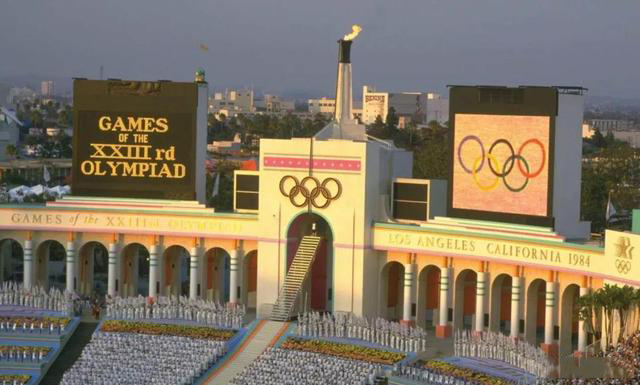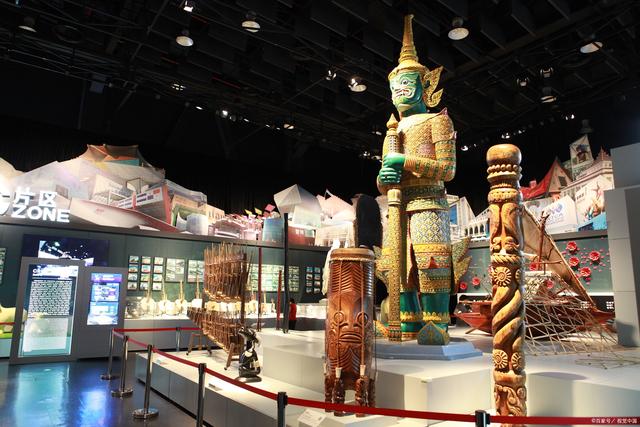The Olympic Games is the world’s largest sporting event. Today, fewer and fewer countries want to host the Olympic Games. The main reason for this is that it takes a lot of manpower and material resources to host the Olympic Games. For some small countries, there is no such ability to host the Olympics, and for developed countries, there is no need to host the Olympics. Nowadays, most countries willing to host the Olympics have certain economic strength and want to increase their reputation in the international community. s country.

In 1984, the 23rd Los Angeles Olympic Games was a major historical turning point for the Olympic Games.
Before the 23rd Olympic Games, as a “business” that only lost money, few countries were willing to undertake it.
In 1972, the Federal Republic of Germany hosted the 20th Munich Olympic Games, and the debt owed was not paid off for more than ten years; in 1976, Canada hosted the 21st Olympic Games, costing 3.5 billion U.S. dollars and losing 1 billion U.S. dollars. For this reason, the government had to levy an “Olympic Special Tax.” In 1980, the former Soviet Union hosted the 22nd Moscow Olympic Games, costing more than 9 billion U.S. dollars, and the loss was unprecedented. However, for the 23rd Olympic Games, businessman Uber Ross made major reforms to the operating model of the Olympics, introduced commercial operating mechanisms, formulated global marketing strategies, and maximized economic value. That Olympic Games not only did not cost the government a penny, nor did it have losses or liabilities, but net profit reached 250 million U.S. dollars, setting an unprecedented record.
Since that Olympic Games, the Olympic Games, which embarked on the road of commercialization, have become a cash cow.
How did Uberroth plan it?
Uberroth carefully planned a set of business strategies and used them creatively. He successively created bidding for television broadcasting rights, sponsors naming and monopolizing Olympic sales rights, commercialization of the Olympic torch relay, and so on.

In this way, the Olympic Games, which was sponsored entirely by private individuals and companies, successfully provided more than 7,000 athletes from more than 140 countries with everything they needed for the competition and left an unimaginable profit of $250 million.
The success of the commercial operation of the Los Angeles Olympic Games has made the world gradually realize the huge commercial value of the Olympic Games, and more and more people have participated in the Olympic movement. Uber Ross has also earned the reputation of “Father of Olympic Business”.
The economic “side effects” of the Olympics
While the Olympics achieved a profit of 250 million U.S. dollars, as the host city, the economy of Los Angeles has also been greatly promoted and achieved rapid development.
In September 1984, the American Association for Economic Research investigated the impact of the Los Angeles Olympics on Southern California’s economy and found that the Olympics’ economic stimulus to the region was as high as US$3.29 billion, far exceeding the Seattle World Expo in 1962 and the Knox in 1982. Vail Expo. The two World Expos each lasted six months, and the total economic benefits were US$1 billion and US$1.5 billion respectively.
An investigation by the Los Angeles Organizing Committee found that due to the hosting of the Olympic Games, Southern California alone had $1.5 billion in additional financial resources rolled into the account, of which $33.5 million in hotel accommodation and tax revenue went directly into the pockets of Los Angeles’ finances. The expansion effect of one Olympic Games on the local economy has surpassed the sum of the two World Expos, which exceeded everyone’s expectations.

At the same time, the Los Angeles Olympics also created a lot of job opportunities. The direct employment opportunities created by the sports, transportation, communications and service industries alone reached 25,000. During the peak period of four months from the beginning of the Olympics to the end of the Olympics, 37,500 new job opportunities appeared.
The Olympics unite one country
The Olympic Games not only played an unparalleled role in promoting the economy, but also became an “inspirational blockbuster” for Los Angeles people and even all Americans at the spiritual and cultural level. With the help of the Olympic boom, Americans’ patriotic enthusiasm has risen unprecedentedly, and the once sluggish morale has also condensed. Of course, this is to a certain extent “attributable” to the boycott of the Olympic Games by the former Soviet Union and Eastern European countries, which led to the redistribution of medals, and the United States seized the opportunity to relive the dream of the Olympic hegemon.
“We are the number one in the world.” For a time, whether on TV, on the game field or at the family table, Americans repeat this sentence every day. For the first time in the history of the Olympic Games, passionate Americans created a record of snapping up all tickets. In the eyes of the Americans, it doesn’t matter what game is going on on the field. The important thing is to be able to rush into the arena and cheer and experience the pride of America once again becoming the world’s number one.
The American Broadcasting Corporation, which bought the rights to broadcast the Olympics, broadcasts the Olympic Games 24 hours a day. They repeatedly played scenes of American athletes winning: the American national anthem sounded from time to time, the stars and stripes fluttered in the wind, and the audience stood solemnly…During the Los Angeles Olympics, all popular music fell out of favor, and the national anthem became the most fashionable among the American people. Music.
Uber Ross later recalled, “The Los Angeles Olympic Games not only reaped hundreds of millions of dollars in profits, but also helped Americans regain the ‘American spirit’, which may be even more valuable wealth.”